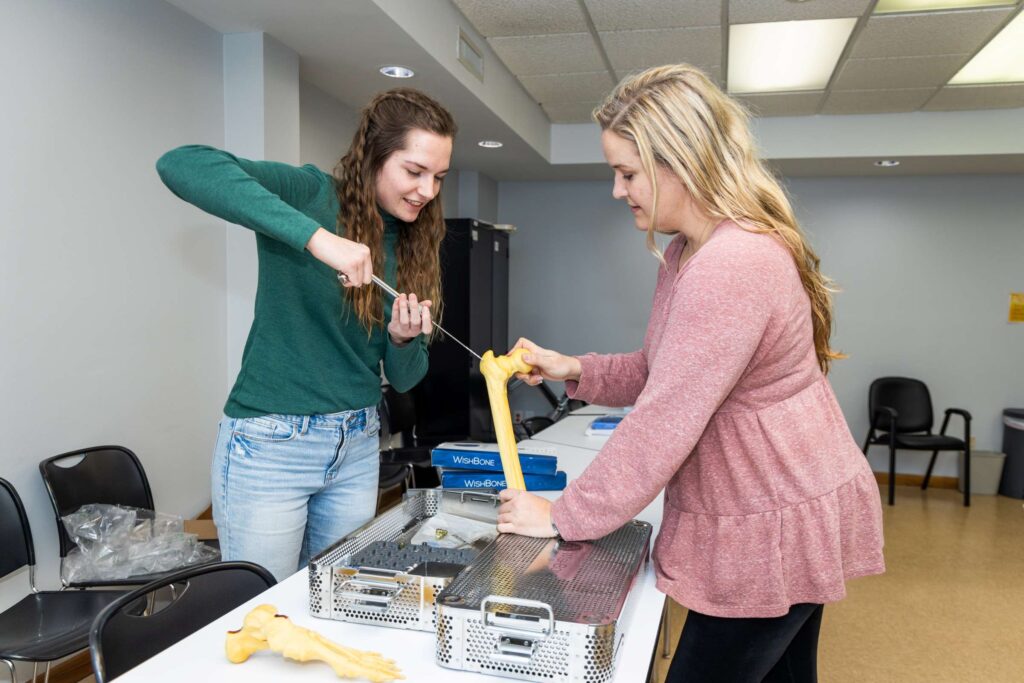Grace College Mechanical Engineering Courses
What classes do mechanical engineers take in college when they attend Grace College? At Grace, our students take many of the common mechanical engineering courses, but our program is set apart from other colleges because of the opportunities our students have to gain hands-on experience, thanks to our location in the Orthopedic Capital of the World. Students can complete projects that make a difference in the world by working with DePuy Synthes, Zimmer Biomet, Lilly Center for Lakes and Streams, or even our own Physical Plant.
“We make sure that we are not only teaching theory, but also application to make sure our students are ready for a job,” said Dr. Fred Wentorf, director of the Department of Engineering at Grace.
Some of the courses in our mechanical engineering major include:
- Introduction to Mechanical Engineering – This course gives an overview of the mechanical engineering profession. Students will learn about key skills used in engineering, such as problem solving and design analysis. Students will also engage in hands-on activities, including 3D printing and digital scanning.
- Engineering Modeling and Tolerancing – Engineering students will learn about graphical communication by studying the fundamentals of engineering drawings and 3D model creations and by receiving an introduction to geometric dimensioning and tolerancing.
- Kinematic and Linkage Design – Students will learn about the motion of objects through common topics of kinematics and kinetics of machines and mechanisms. Some of these topics include displacement, velocity, and acceleration analysis.
- Advanced Manufacturing Processes – This course will teach students about various advanced manufacturing methods and CNC machining. Tools that can be used to analyze and improve manufacturing processes will also be introduced.
- Introduction to Finite Element Analysis – This course provides a preview to linear and nonlinear programming and numerical techniques for solving mechanical problems. Students will also receive an introduction to finite element analysis, which is using technology to predict how a product will react to forces.
- Engineering Service – Engineering students use their engineering skills to complete a service project. Students can help with engineering education in local schools, perform engineering projects for non-profits, or find other ways to use their engineering skills to serve others.
- Engineering Internship – All engineering students are required to get hands-on experience by completing an internship. Faculty will help students find internships that align with their skills and interests.
According to Dr. Wentorf, “Internships allow students to use skills in industry application to cement the skills.”
Ultimately, mechanical engineering is about glorifying God and using mechanics to help people. “God gave us engineering skills, and it is our job to use them to make the world a better place,” said Dr. Wentorf. “It’s all about understanding the world God made and the mechanics under it.”
All in all, mechanical engineers take classes in science, math, and design to learn how to create and test machines. Now that we’ve answered your question of what classes do mechanical engineers take in college, learn about our mechanical engineering major and request more information about Grace College.





